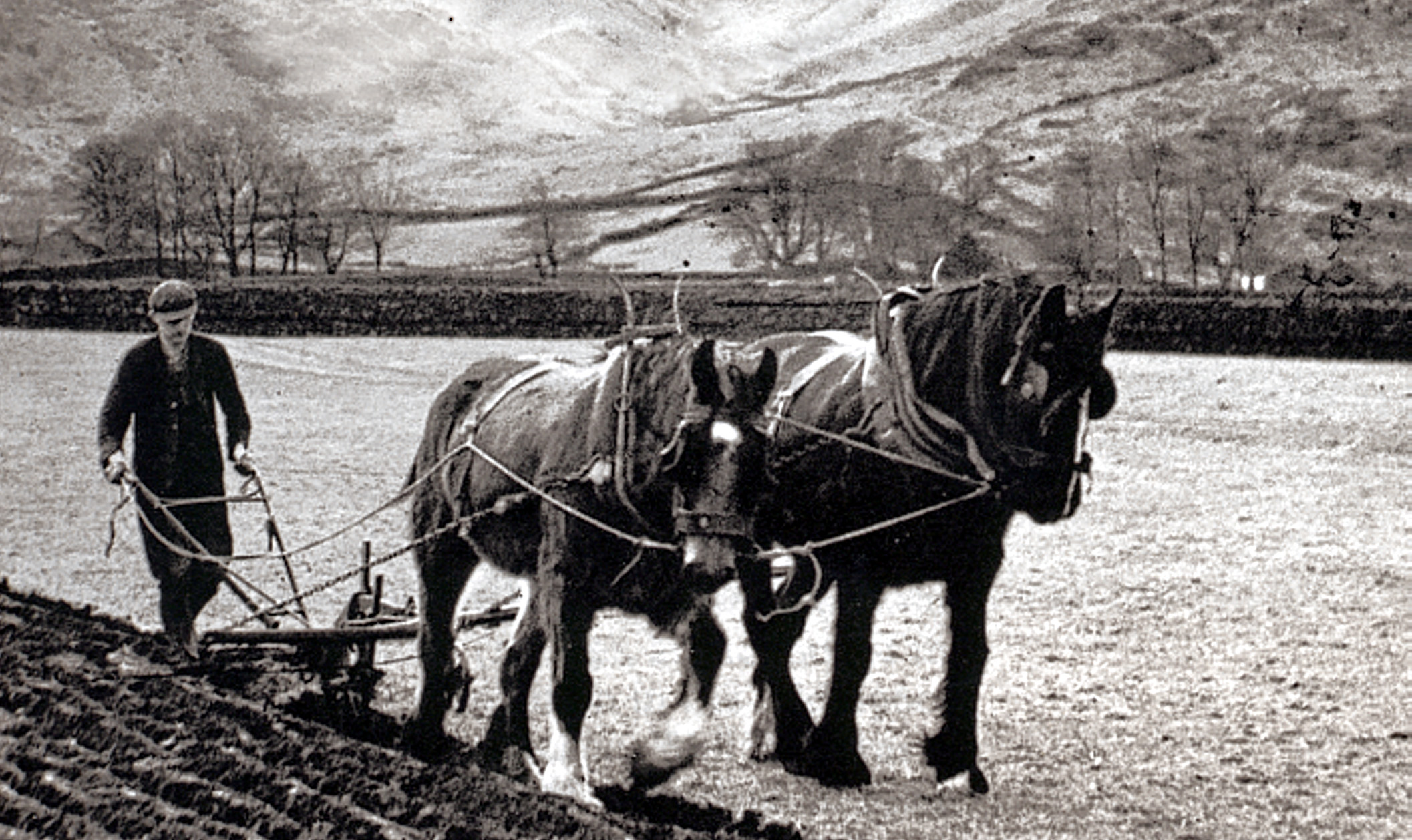Mardale Green The Jewel in a Lost Crown

The year was 1919 and sad news reaches the folk of Mardale Green, they awoke to learn that the Manchester Water Corporation had just secured the long awaited Haweswater Act, a compulsory purchase agreement of the day, which granted them permission to build a dam and drown one of Lakeland's Jewels in its crown.
Since that day in 1208, when Sir Hugh Holme arrived, time had been kind to Mardale, that was until this terrific blow was unleashed, for hundreds of years the green has stood at the head of the valley, its once fine white washed farm houses dotted the breathtaking landscape, now they arrive with pick, crane and dynamite to change things forever.
The act read that the farmers must abandon their homes together with hundreds of acres of land, their cattle and sheep must be sold off, unless a suitable alternative could be found.
Once the plug was set, the waters will rise to cover the farms, schools and church, where will the people go, How do they feel, their last farewells will be heart breaking and tragic, but they will have to be done.
The Kitchen family have lived and farmed the Measand area for nigh on ninety years, Tom the head of the family now an old man of seventy, a solitary figure tall and thin, making his way home from tending his flock on the fell side, he was a man of very few words, as men so often are who live their lives in solitary places, in his silence is a depth of feeling, "that no words could express", it is the silence of a man resigned to fate, a man who knows quite well, "there could never be any other place".
Some of the villagers say he will retire, but still he says nothing, and as yet, he has made no effort to find, "that other place", perhaps he is thinking that a miracle might happen and he would not have to leave his home and way of life at all.
He will however talk freely about the effect the flooding will have upon his valley, he says "When the waters come up, Mardale will be ruined as a beauty spot," The soft green of hedge and meadow will be gone leaving only the harsh fells for company".
Of his twelve sons and daughters, six still live at home, Lennox the oldest son is married with two boys, and lives in the family cottage less than a hundred yards away.
We still don't know where we are all going to go, "says Doris" and we still haven't found anywhere else to go as yet, the officials from the corporation are coming to see father, he is hoping that they will let us stay on for another five years or so.
Tom's daughter, Doris keeps house for her father and four unmarried brothers, sisters Maria and Rosemary are both married and live in nearby Bampton and another brother Bernard is married and lives at Appleby.
Mrs Kitchen died about sixteen years ago leaving a young girl of six months old, who went to live with an aunt in Grassmere and was sent to school in Ambleside.
A little further up Measand stands the small holding of Colby where Tom's sister once lived, she is also tall and thin like him, and was then the oldest surviving member of the family, before the evacuation.
A mile and a half further along the valley you come to Flake Howe farm where Mr and Mrs Lancaster lived with their twin girls and three other children, Mrs Lancaster was born on the farm, which belonged to her father, who retired and went to live in Askham, only to die there several months later.
Like everyone else the Lancaster's were finding it extremely hard securing another place that catered for sheep only, of which they had about a thousand.
In a good season our farms were very profitable, we didn't grow any crops like Mr Kitchen, seen ploughing above, there are plenty of arable farms to be had, but not that many that cater for sheep.
So far only the Bell's of Grove Brae have secured another farm, in nearby Heltondale nine miles away, Tom left in February to go and get it in working order, until then Edith and her young one's will have to manage alone, the Bell's were allowed one year's rent by compensation, not a lot, even in those days, when you take into account there were two places to run until the move actually happened.
For the rest of the story and the things I wrote several years ago you can follow on from the links below.
I would also like to thank and mention some of the locals for helping me track down the information for this story, Mrs S Hindmarch, Mr J Graham, who's late wife was the daughter of the landlord at the Dun Bull, and many others who I could not have done it without.
http://www.mardale.green.talktalk.net/
And my album here, free for all, but please give us a mention and all who own the original glass plates.